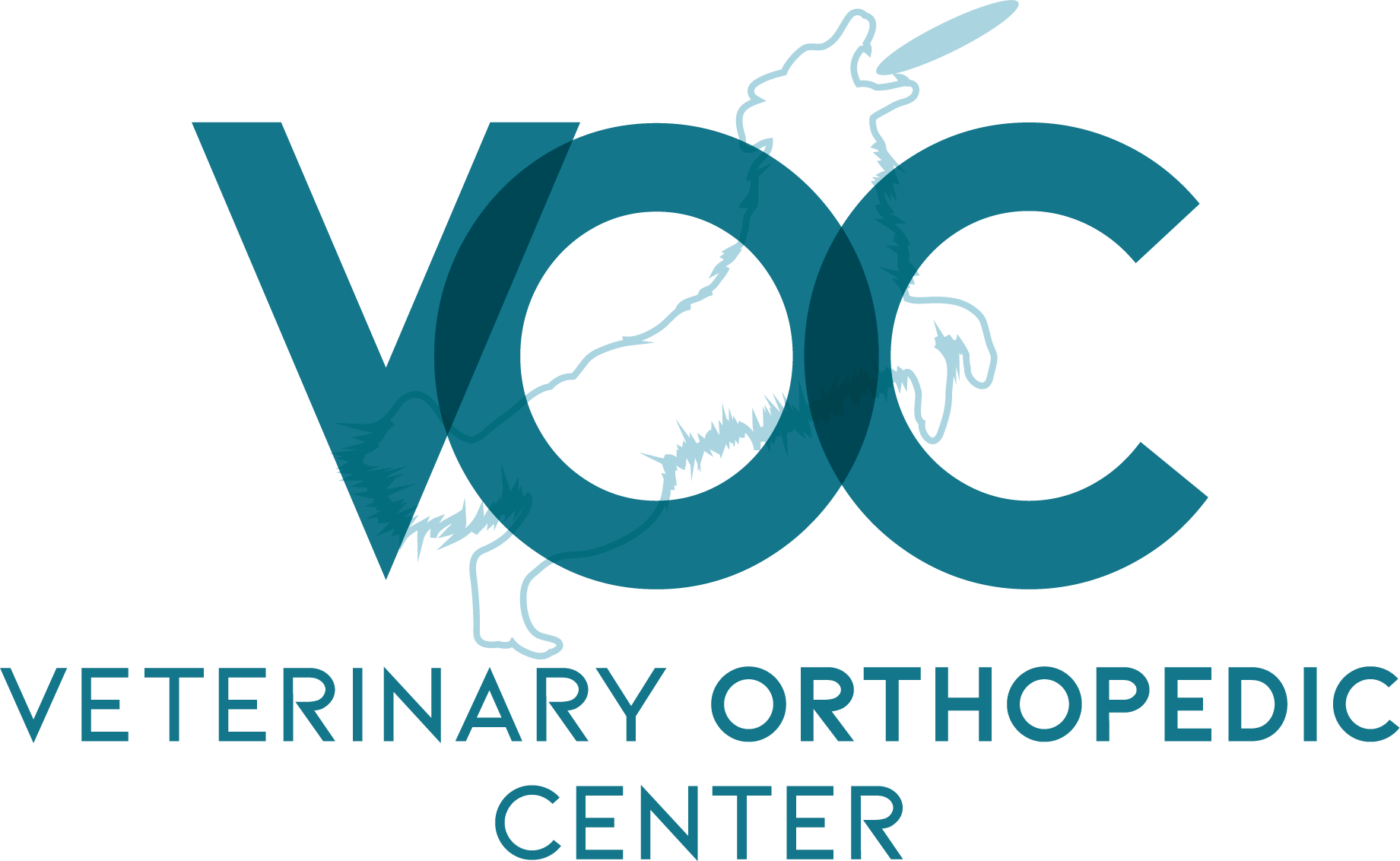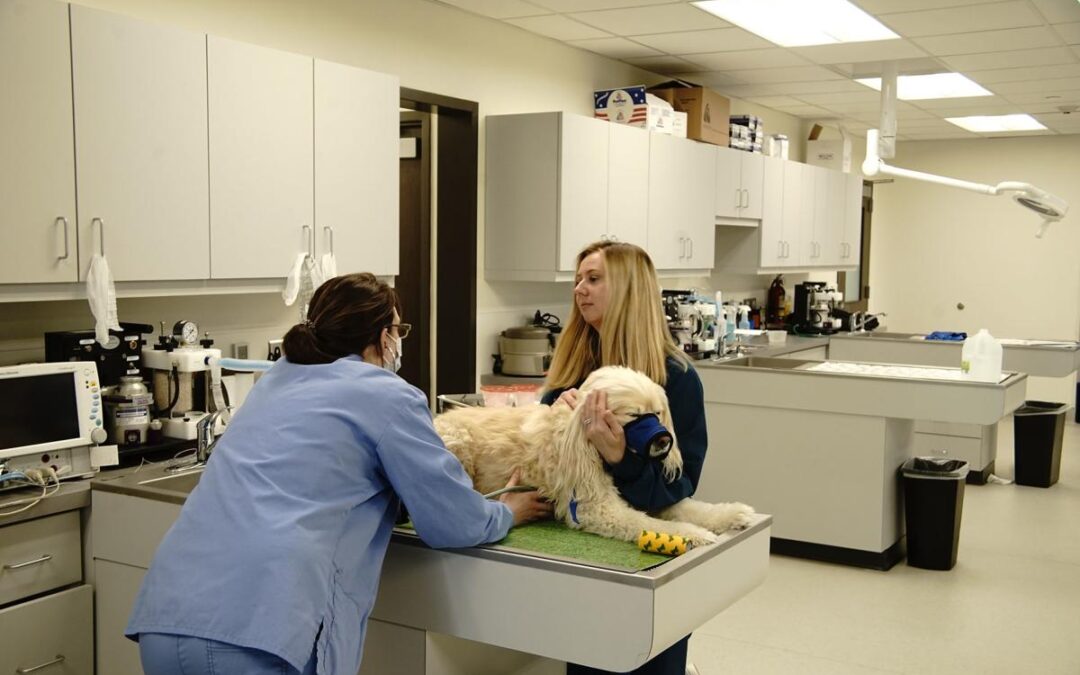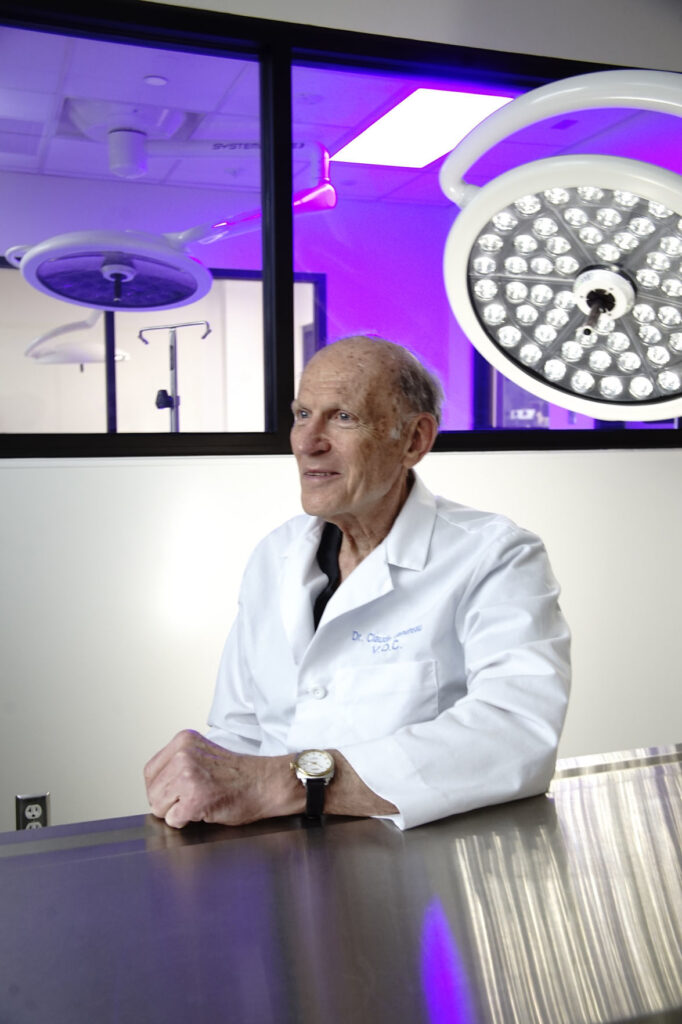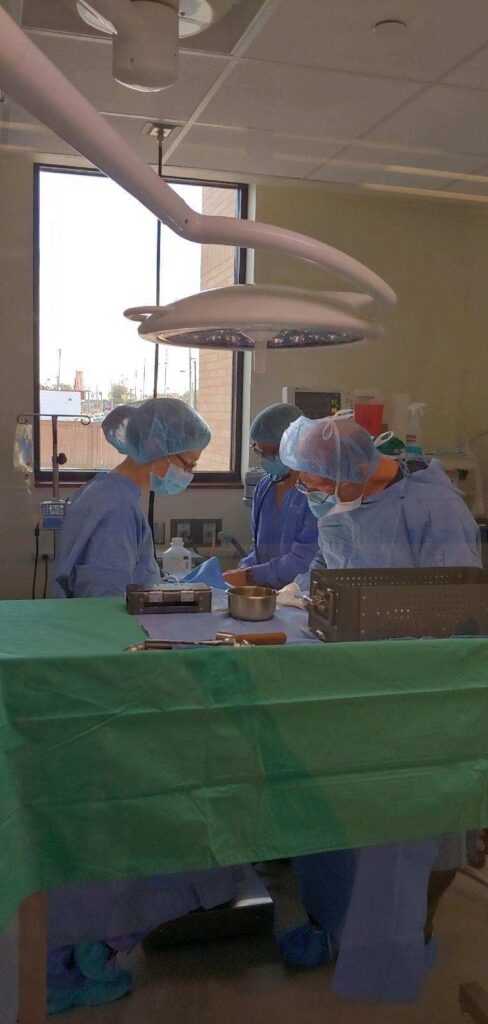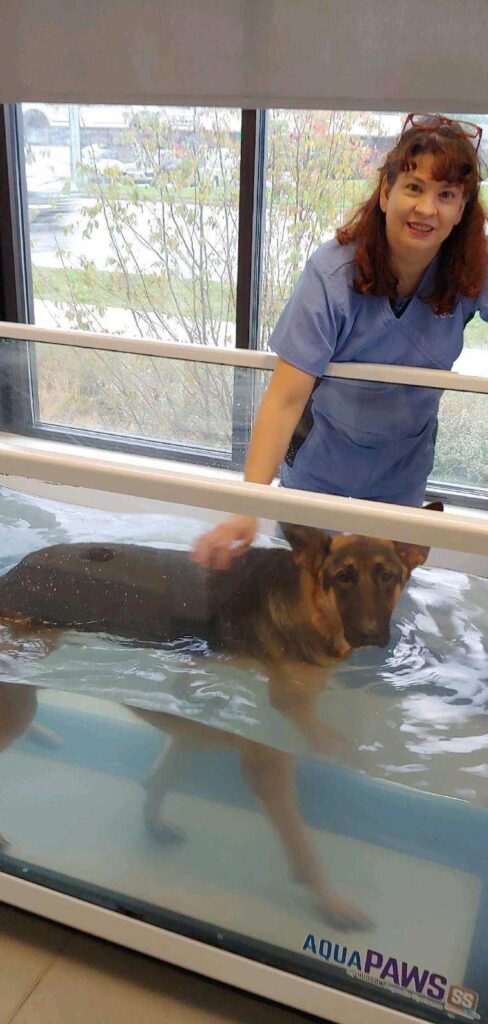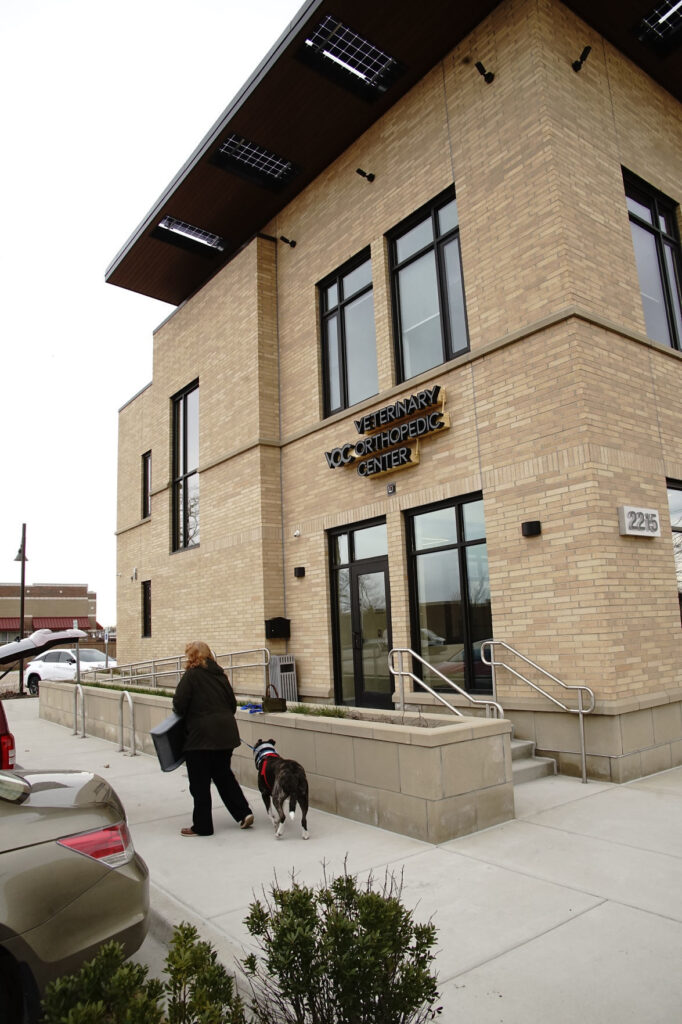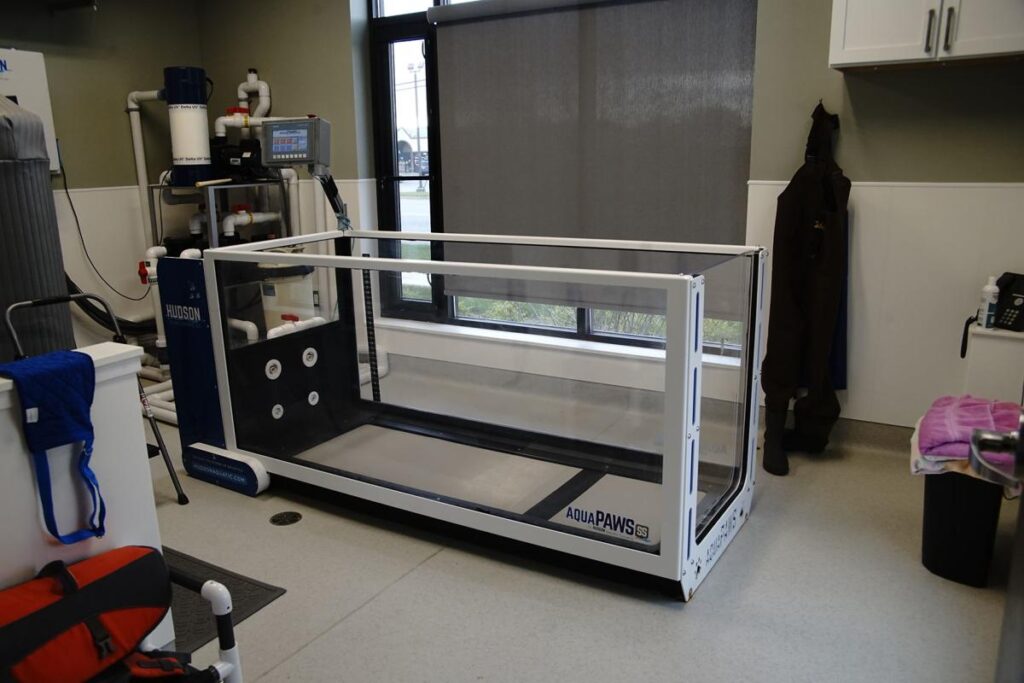Michael Esposito | May 13, 2020
For many years, people who received a veterinary surgery referral for their pets in Northwest Indiana needed to travel for care. Often that meant a trip to Purdue University, the University of Illinois at Urbana-Champaign or Chicago and its suburbs.
Dr. Claude Gendreau, who specializes in veterinary orthopedic surgery, recognized this while treating patients from Indiana at the Veterinary Specialty Center in Buffalo Grove, Ill., about 30 miles north of downtown Chicago. His answer was Highland’s Veterinary Orthopedic Center.
“This is an area totally underserved for specialty care,” Gendreau said. “There are many very good general veterinary hospitals, but not the specialty care.
“This was a place in the middle with a need for those services — really, the hub of a wheel for all those places,” he said, adding that the center has received referrals from more than 150 hospitals since its opening in December 2018, including many patients from Chicago and as far away as Wisconsin.
“There are only, maybe, two or three places in the country that limit their service to just orthopedic surgery,” Gendreau said. Keeping this practice narrowly focused is a key to its success, he said.
“For orthopedic surgery, you need a surgeon and good X-ray equipment and good lights and a sterile environment,” he said. “I wanted to limit it to what I’m best at.”
Veterinary Orthopedic Center’s patients are mostly athletic dogs, Gendreau said, with most of the procedures performed involving fractures, hip surgeries, straightening crooked legs. “So I’m dealing with patients that are very healthy, so I don’t have to worry,” he said.
There are exceptions. In early April, Gendreau amputated a Great Dane’s cancerous leg to extend its life by eight or nine months, he said, but by and large his patients are in good health other than an orthopedic issue.
The vast majority of the 800 to 900 surgeries performed at the center have been on dogs; cats account for about 1 procedure for every 20 performed on dogs. Even more rare was a rabbit patient.
The disparity between canine and feline surgeries is because “[dogs] are more prone to injuries,” Gendreau said, adding that repairing anterior cruciate ligament, or ACL tears, is a frequent procedure along with broken legs. “Little Yorkies may jump down too far and break a leg.”
No matter the breed or species, facility standards reflect design, equipment and protocols to provide the most germ-free environment possible to reduce the risk of infection. In addition, the center has an in-house rehab facility to shorten patients’ recovery time.
As well as the veterinary care considerations for the center, Gendreau, who also is the author of “What You Must Do for Your Country,” which promotes increased resource and energy efficiency, embraces his own prescription for minimal environmental impact. Materials used in construction at the Cardinal Campus of Highland, which includes the center, were selected with attention to their environmental impact, such as state-of-the-art HVAC systems, rooftop renewable solar photovoltaic panels and even permeable parking lot pavers that eliminate the need for retention ponds. The result is that the campus received Leadership in Energy and Environmental Design Platinum status from the U.S. Green Building Council.
“This is also kind of a new model,” Gendreau said. “I saw this opportunity to buy 9 acres a stone’s throw from a commercial area to build an environmentally friendly, LEED-certified new development, trying to set an example—raise the bar in development,” he said. “I’m proud that we’re trying to be good citizens of the world, doing something that will set an example and we’re getting a lot of support.”
Most of the campus’s other tenants including professional practices in medicine and law.
The Veterinary Orthopedic Clinic is in the Cardinal Campus of Highland at 2215 Main St. Visit VetOrthoCenter.com or call 219-922-6000.
Photo credit: Tony V. Martin, The Times
